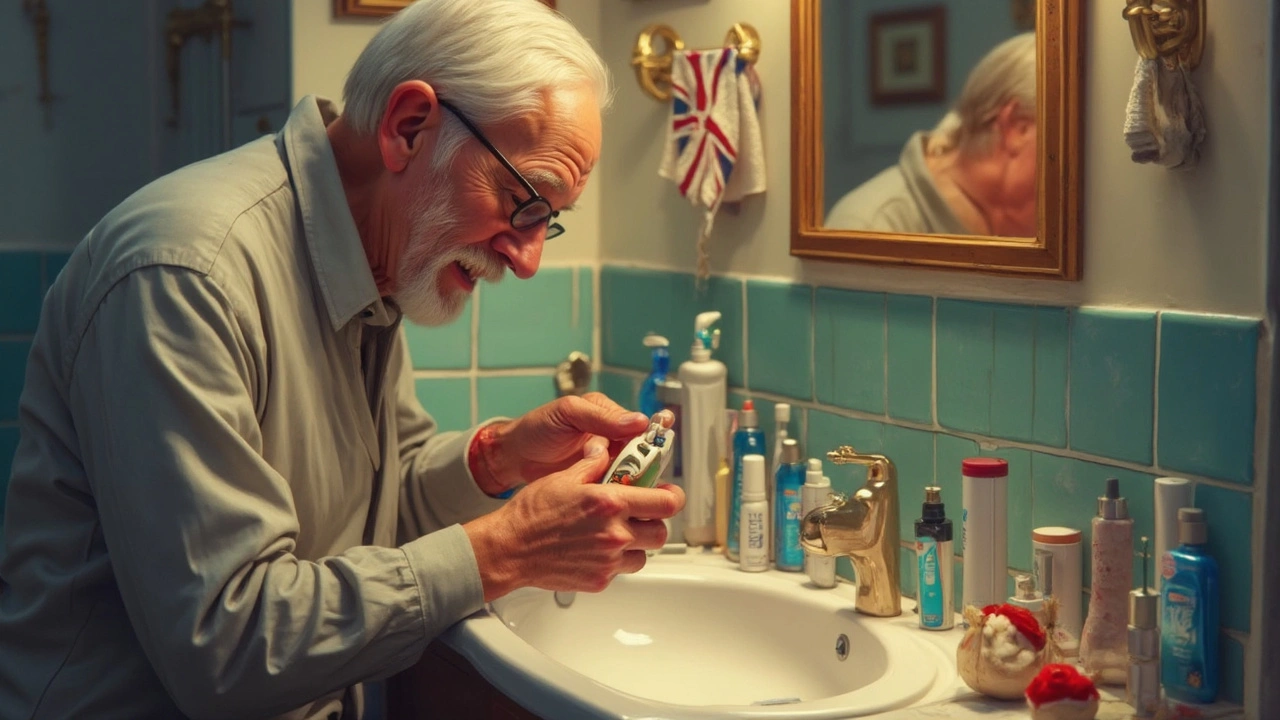Dental Health Tips You Can Use Right Now
Keeping your mouth healthy doesn’t have to be complicated. A few simple habits can stop cavities, bad breath, and painful gums before they start. Below you’ll find easy steps that fit into any routine, plus quick advice on choosing safe over‑the‑counter products.
Brush Like a Pro
The first line of defense is brushing twice a day with a soft‑bristled toothbrush. Use a pea‑size dab of fluoride toothpaste – the fluoride helps rebuild enamel and fights decay. Hold the brush at a 45° angle to your gums and use gentle, circular motions. Don’t scrub hard; aggressive brushing wears down enamel and irritates gums.
If you forget to brush after meals, rinse with water or chew sugar‑free gum for five minutes. The extra saliva neutralizes acid and clears food particles until your next brush.
Floss and Fill the Gaps
Flossing removes plaque where a brush can’t reach – between teeth and just below the gum line. It only takes 30 seconds per day. If traditional floss feels tricky, try floss picks or a water flosser. The goal is to slide the floss gently up and down without snapping it into gums.
For people with braces or tight gaps, interdental brushes work well. Pick a size that slides easily between teeth and move it back and forth a few times.
Watch What You Eat
Sugar is the main culprit for cavities. Limit sodas, candy, and sticky snacks. If you do indulge, brush or rinse afterward. Crunchy veggies like carrots and apples naturally clean teeth while you chew.
Drink plenty of water throughout the day – it washes away food particles and keeps saliva flowing. Saliva is your mouth’s natural defense because it contains enzymes that fight bacteria.
Pick Safe Over‑the‑Counter Products
When choosing a mouthwash, look for one with ADA (American Dental Association) seal. This means the product has been tested for safety and effectiveness. Alcohol‑free formulas are gentler on sensitive gums.
If you need a pain reliever for toothache, generic ibuprofen or acetaminophen works well. Always follow dosing instructions and check for interactions if you’re taking other meds.
Know When to See the Dentist
A regular dental check‑up every six months catches problems early. Schedule an appointment if you notice bleeding gums, persistent bad breath, or a sudden toothache. Early treatment of gum disease can save teeth and reduce inflammation that affects overall health.
For emergency situations – severe swelling, uncontrolled bleeding, or a knocked‑out tooth – head to urgent dental care right away. Quick action improves the chance of saving the tooth.
Quick Recap
- Brush twice daily with fluoride toothpaste.
- Floss every day; use picks or water flossers if needed.
- Limit sugary foods and drink water often.
- Choose ADA‑approved mouthwash; avoid high‑alcohol products.
- Visit the dentist twice a year, sooner for any pain or bleeding.
These steps keep your smile bright without breaking the bank. Pair good habits with safe generic oral care products and you’ll enjoy strong teeth and healthy gums for years to come.

